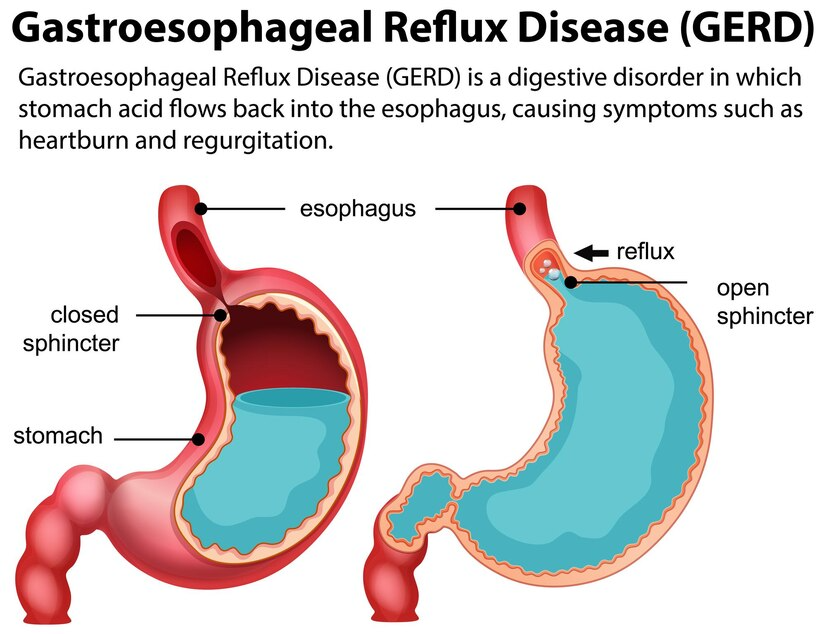Gastroesophageal Reflux Disease (GERD) Management Strategies And Symptoms
Table of Contents
Gastroesophageal Reflux Disease (GERD) is a prevalent and chronic condition that affects millions of people worldwide. It occurs when stomach acid frequently flows back into the esophagus, leading to various symptoms and potential complications. Understanding the causes, symptoms, and management of GERD is crucial for individuals who may be experiencing this condition.
Causes:
GERD is primarily caused by a weakened lower esophageal sphincter (LES), a ring of muscle that separates the esophagus from the stomach. When the LES does not close properly, stomach acid can flow back into the esophagus, causing irritation and inflammation. Several factors contribute to the weakening of the LES, including:
- Hiatal Hernia: A condition where a portion of the stomach pushes into the diaphragm, affecting the functioning of the LES.
- Obesity: Excess weight can put pressure on the abdomen, leading to the displacement of the stomach and increased risk of acid reflux.
- Pregnancy: Hormonal changes during pregnancy and the pressure exerted by the growing fetus can contribute to GERD.
- Smoking: Tobacco smoke weakens the LES and can reduce saliva production, which helps neutralize stomach acid.
Symptoms:
The symptoms of GERD can vary in severity, and not everyone with the condition experiences all of them. Common symptoms include:
- Heartburn: A burning sensation in the chest, often after eating, and can worsen when lying down or bending over.
- Regurgitation: The sensation of stomach acid or food coming back into the mouth or throat.
- Chest Pain: Chest discomfort that may mimic heart-related pain, often occurring after meals.
- Difficulty Swallowing: A feeling of a lump in the throat or difficulty swallowing, known as dysphagia.
- Chronic Cough: Persistent coughing, especially at night, that may be a result of stomach acid irritating the airways.
Management and Treatment:
While GERD is a chronic condition, it can be effectively managed through lifestyle changes, medications, and, in some cases, surgery. Here are some strategies for managing GERD:
- Lifestyle Modifications:
- Maintain a healthy weight through diet and exercise.
- Avoid large meals, especially before bedtime.
- Elevate the head of the bed to prevent acid from flowing back into the esophagus during sleep.
- Dietary Changes:
- Identify and avoid trigger foods and beverages, such as spicy or acidic foods, caffeine, and alcohol.
- Eat smaller, more frequent meals to reduce pressure on the LES.
- Medications:
- Antacids can provide quick relief by neutralizing stomach acid.
- H2 blockers and proton pump inhibitors (PPIs) reduce acid production and promote healing of the esophagus.
- Surgery:
- In severe cases where medications and lifestyle changes are ineffective, surgical options like fundoplication may be considered to strengthen the LES.
Conclusion:
Gastroesophageal Reflux Disease can significantly impact an individual’s quality of life, but with the right management strategies, most people can lead a normal, symptom-free life. It’s essential to consult with healthcare professionals for accurate diagnosis and personalized treatment plans tailored to each individual’s needs. By understanding the causes, recognizing symptoms, and implementing effective management strategies, individuals with GERD can take control of their condition and improve their overall well-being.

